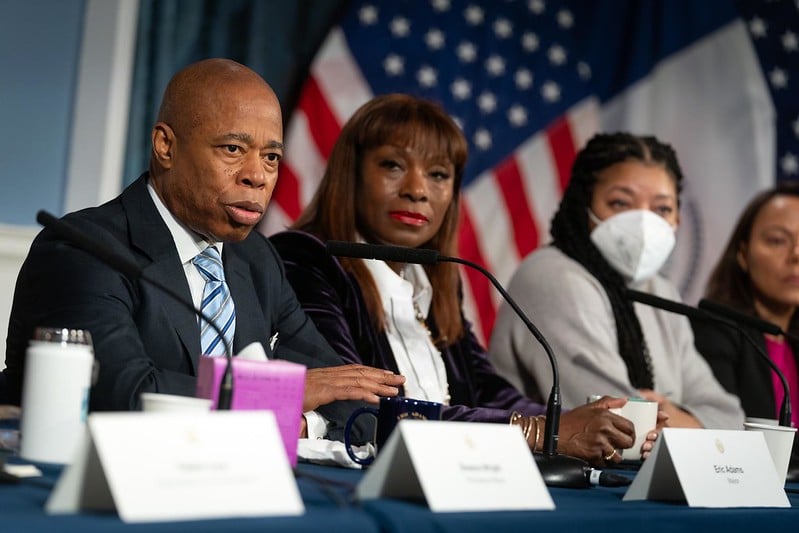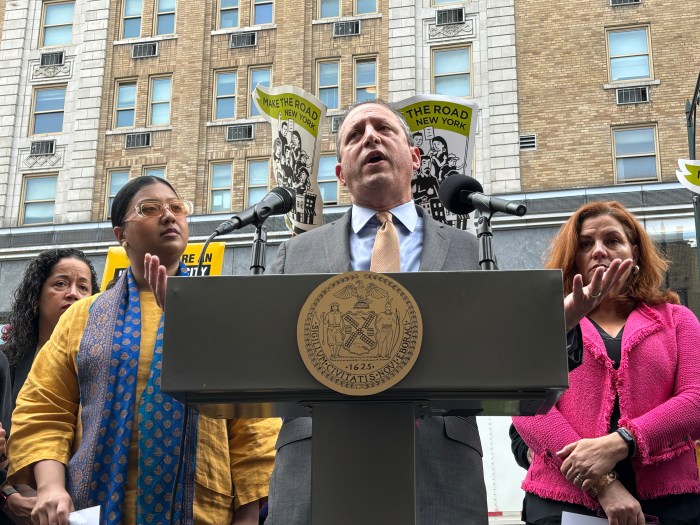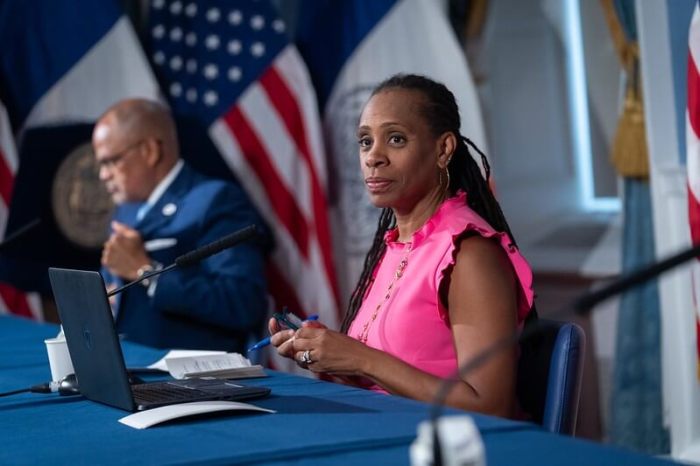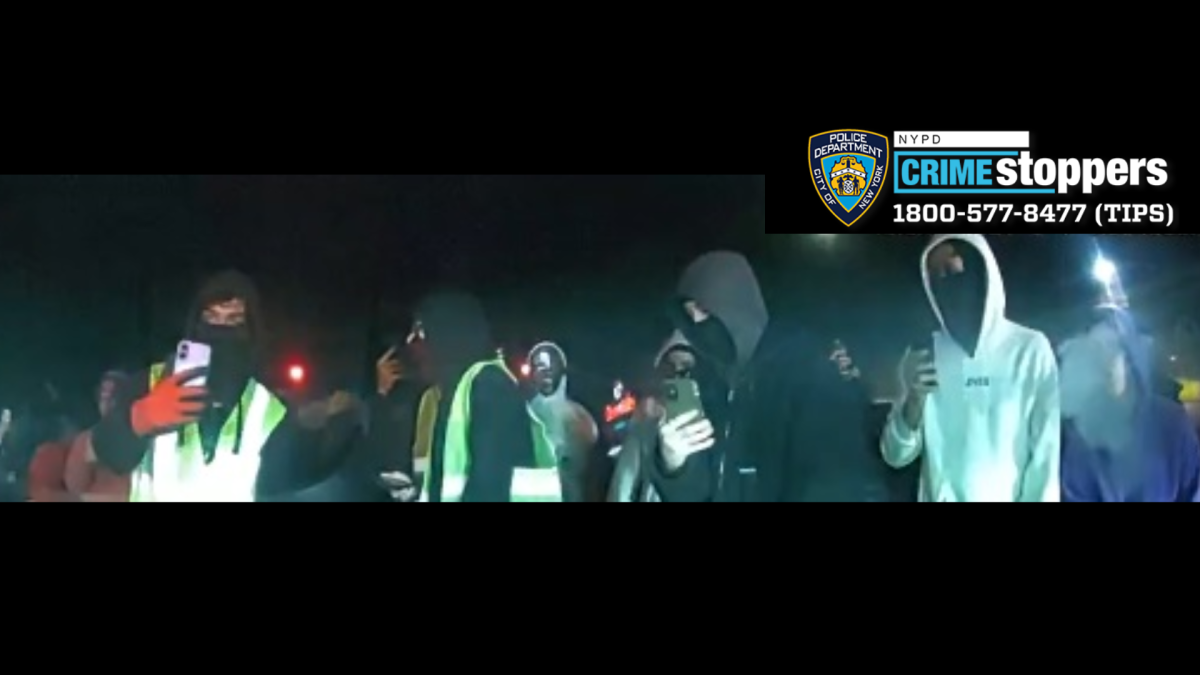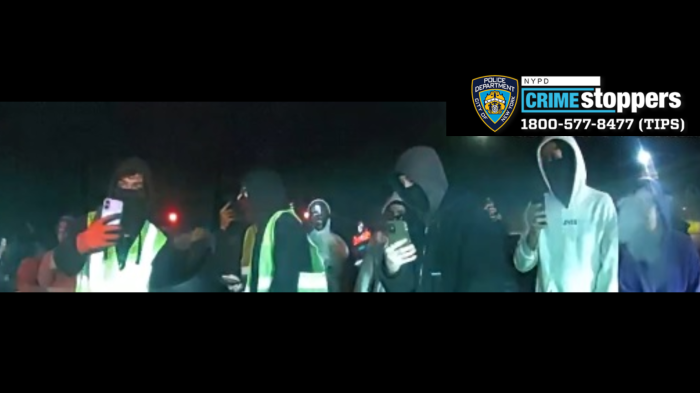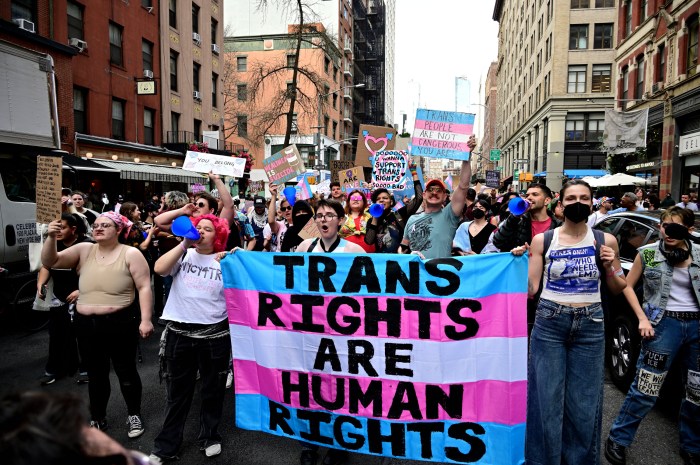Mayor Eric Adams and his administration officials on Monday insisted several dozen migrant families with children getting evicted from shelters on Tuesday, when a 60-day limit on their stays is up, will not end up sleeping on city streets — but critics say it will destabilize those affected.
During his weekly “off-topic” news conference, Hizzoner said his administration has always prioritized making sure no families with children are left to sleep outside and that Tuesday will be no different.
“Anyone who believes that this administration, we’re creating an environment in which children and families will sleep on the street, they’re not hearing our message over and over again,” the mayor said. “This is not going to be a city where we’re going to place children and families on the street and have them sleep on the street.”
But a large group advocates and pols rallied against the policy in Foley Square on Jan 8, charging it is inhumane and would destabilize families with children by making them leave their current shelter placements to wait on line in the cold at the city’s migrant intake center, at Midtown Manhattan’s Roosevelt Hotel, for new beds.
The rally was organized by the New York Immigration Coalition and was attended by pols like city Comptroller Brad Lander and Public Advocate Jumaane Williams.
Opponents of the policy are particularly concerned that migrant children will either have to travel greater distances to their schools or change schools altogether.
“Tomorrow, we will see families and children displaced from their homes at risk of being stuck in the freezing cold weather we know is coming,” said Liza Schwartzwald of the New York Immigration Coalition, at the rally. “This decision will disrupt schools, it will create long lasting impacts on children and it will increase the instability and harm to students that are already struggling to navigate the school system.”
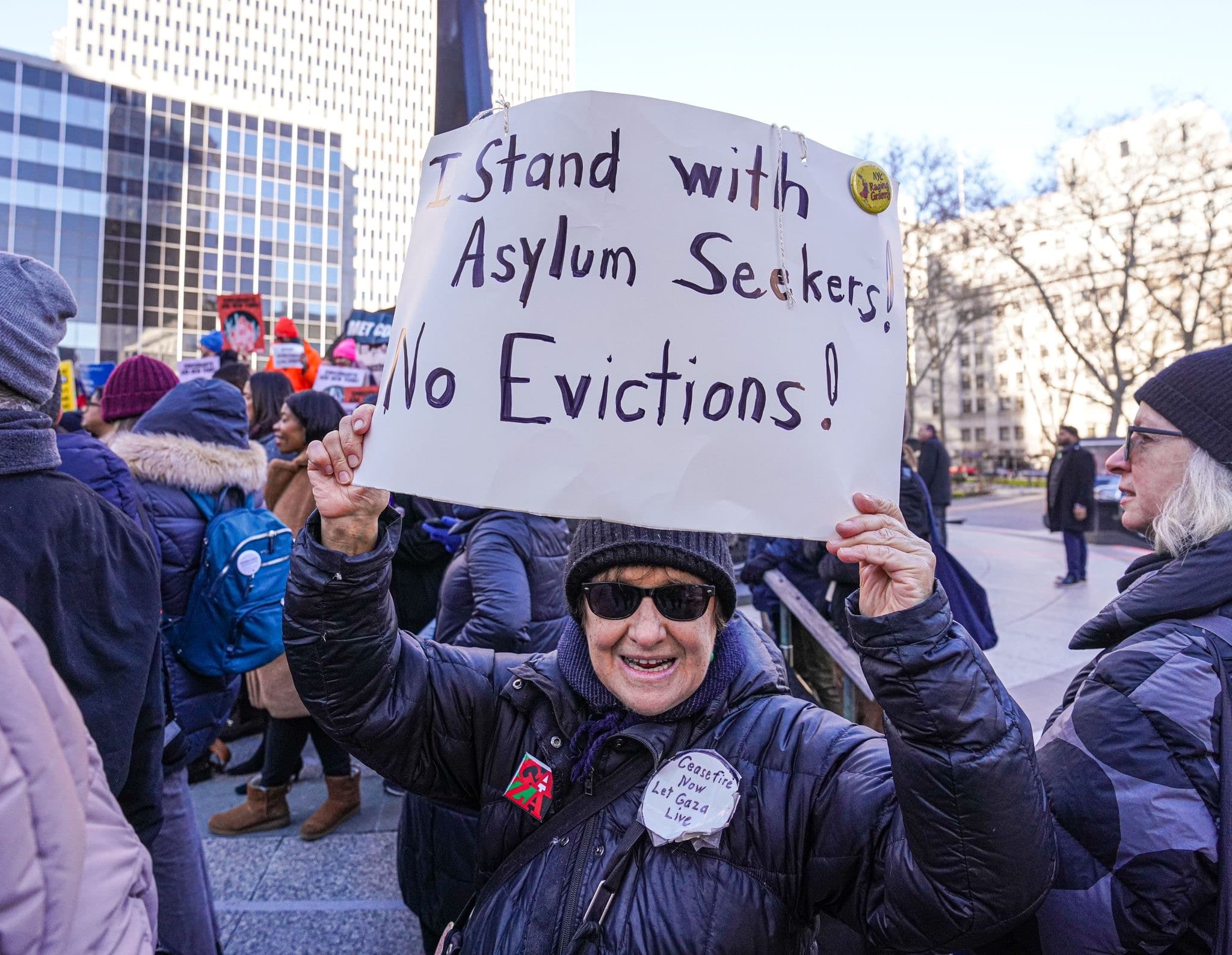
The 60-day limit for migrant families was implemented in October as yet another means of bringing down the city’s massive shelter census, which has ballooned over the past year and a half due to the influx of more than 160,000 new arrivals — nearly 70,000 of whom are still in the city’s care.
Notices of the limit are distributed on a rolling basis as migrants enter the shelter system, according to City Hall. Roughly 4,400 have been given to families so far and around 40 will come due for those staying at the Row Hotel in Midtown Manhattan on Tuesday.
A similar limit for single adult migrants, which started at 60 days but was brought down to 30 days, was rolled out last summer.
New policy aims to ‘stabilize’ migrant families, admin says
The administration argues the policy is helping families by pushing them to find more permanent housing and not be reliant on the city indefinitely.
Deputy Mayor for Health and Human Services Anne Williams-Isom, during the mayor’s press conference, said the policy allows them to “stabilize” the families that have been in shelter, while making space for thousands more migrants arriving in the city each week.
“What we are trying to do is actually stabilize them and make sure that they have what they need and make sure that those families just coming to us at the front door also has an opportunity,” Williams-Isom said. “I just don’t like this premise that we are destabilizing families or that we are harming children and families. There’s no evidence of that.”
While just 40 notices are due on Tuesday, the number will ramp up over the next couple of weeks, until around 100 people making up families will be evicted a day, according to Legal Aid Society attorney Josh Goldfein. The policy, however, only applies to migrant families living in the city’s Humanitarian Emergency Response and Relief Centers (HERRCs) and not shelters run by the Department of Homeless Services, where the majority of migrant families are housed.
Dr. Ted Long, senior vice president at NYC Health + Hospitals, said the city has worked intensively with the families at the Row, whose 60-day notices are coming due, to find alternative housing for them through a series of four or more meetings with their “intensive care team.” The process has helped some families leave shelter, Long said, but others are still there.
City case managers met with the remaining migrant families again, Long said, and put together a list of which schools their children attend. Those families will then go to the Row tomorrow, where they will be prioritized for new shelter placements in Manhattan hotels near where their children are currently enrolled in school.
‘Cruel’ and ‘unnecessary’
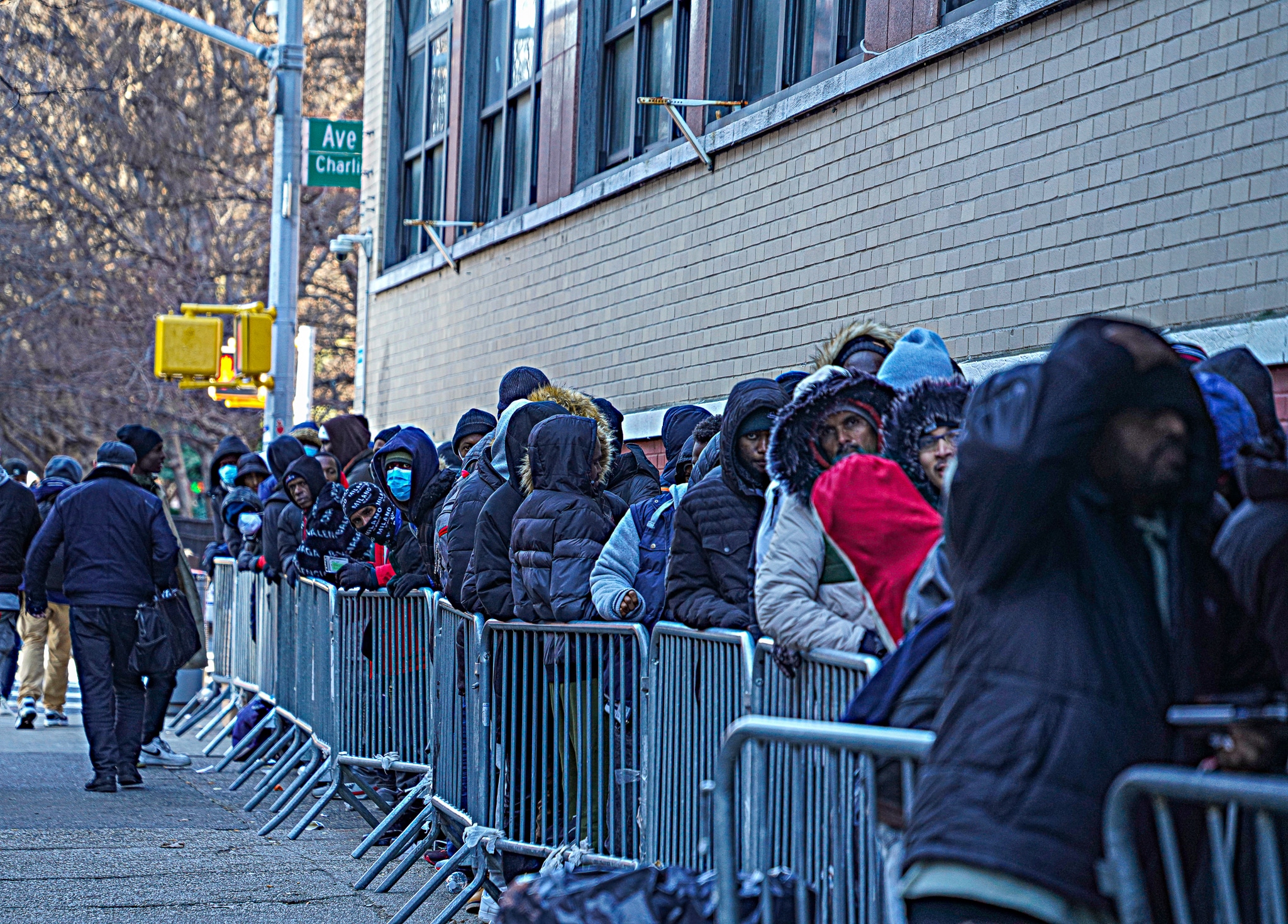
However, progressive pols, homeless and immigrant advocates are not buying that the policy will not harm families with children, arguing it is “cruel” and “unnecessary.”
Deputy City Council Speaker Diana Ayala, a vocal critic of both the policy and Adams’ response to the migrant crisis writ large, said evicting families from shelter will be disruptive to every aspect of their lives, including their quests to find permanent housing and their children’s schooling. She added it will make it harder for them to have continuity with their asylum applications by forcing them to change mailing addresses.
Ayala said she believes the actual point of the policy is to make people so uncomfortable that they will want to leave the system.
“Displacing those people just to accommodate new people, only to have the original people go back into an intake center and be reprocessed every 30 to 60 days, tells me that this has absolutely nothing to do with anything other than the administration’s intent to make people so uncomfortable that they leave voluntarily,” Ayala said, in an interview.
The deputy speaker also did not express much confidence that the policy would not force some migrant children to change schools. Furthermore, she expressed concern that children could end up waiting in line with their parents and missing school every time they have to change shelters.
“I’m really concerned that children would be standing in line with parents in this weather, missing school days, just for the sake of proving a political point,” she said.
Read more: Mayor Adams Restores Funding for Litter Baskets and Parks



